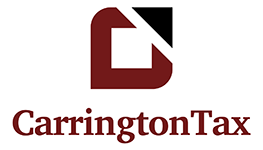
New guidance is available for employers on the retroactive termination of the Employee Retention Credit.
The new information is contained in Notice 2021-65.
The reversal comes after passage of the Infrastructure Investment and Jobs Act on Nov. 15 of this year. The new law amended the language of the original Employee Retention Credit so that it now applies only to wages paid before Oct. 1, 2021. The only exception is for recovery startup firms.
Why was Employee Retention Credit guidance needed?
This new guidance applies to some employers who paid wages after Sept. 30 of this year and got an advance payment of the Employee Retention Credit.
These employers may also take the option to make reduced employment tax deposits ahead of getting the credit in the fourth quarter of the year. But there’s a problem: Thanks to the change in the law, the employers no longer qualify for the credit or the advance payments.
For those affected employers who got advance payments of the credit for fourth-quarter wages, the fix is simple. They can avoid failure-to-pay penalties as long as they repay the amounts by the due date on their employment tax returns.
What about those employers who chose to reduce their employment tax deposits?
In that case, if the deposits were reduced on or before Dec. 20, 2021, for wages paid in the fourth quarter of the year anticipating the Employee Retention Credit, the employer won’t face failure-to-deposit penalties if:
- The employer reduced deposits in anticipation of the Employee Retention Credit, consistent with the rules in Notice 2021-24;
- The employer deposits the amounts initially retained in anticipation of the Employee Retention Credit on or before the relevant due date for wages paid on Dec. 31, 2021 (regardless of whether the employer actually pays wages on that date). Deposit due dates will vary based on the deposit schedule of the employer, and;
- The employer reports the tax liability resulting from the termination of the employer’s Employee Retention Credit on the applicable employment tax return or schedule that includes the period from Oct. 1, 2021, through Dec. 31, 2021. Employers should refer to the instructions to the applicable employment tax return or schedule for additional information on how to report the tax liability.
It should be noted that while the various remedies mentioned can help employers escape failure-to-pay and failure-to-deposit penalties for taxes due on fourth-quarter wages in 2021, employers won’t avoid such penalties if they reduce deposits after Dec. 20.
Employers who get a notice of a penalty can reply with an explanation. The IRS says it will then consider issuing relief for reasonable cause.
Check out the IRS website at IRS.gov for more information on coronavirus-related relief measures for businesses.
Source: IR-2021-242
